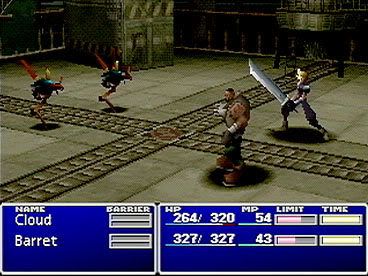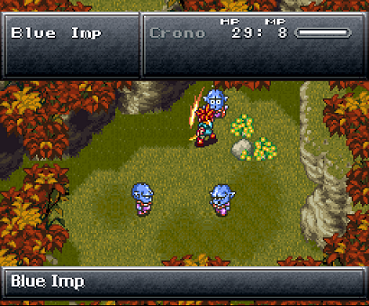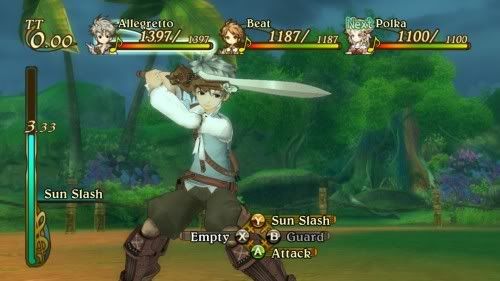RPG Clichés: Random Encounters

For anyone who is familiar with the genre, traditional/console RPGs, or role-playing video games are infamous for their trademark gameplay aspects and unspoken “rules” or clichés that many of the games follow. Planned as a recurring column, I hope to provide background information for those unfamiliar with the genre and give some insight and commentary on their role in the RPG genre as a whole. The first entry will cover a staple in many games, random encounters.
Many narrative or gameplay features seen in RPG video games can be traced back to tabletop RPGs such as Dungeons & Dragons. The Dungeon Master would use different tables and information to give player characters various scenarios and battles to fight. Often used to wear down the character, challenge and level up players, or as filler in-between story events, even then players were questioning the fun and frequency of these encounters. As video games became more popular and advanced, RPGs started to take form on PCs and video game consoles. Random battles became more known in such console game series as Dragon Quest, Final Fantasy, and Pokémon. Typically occurring on the overworld map, game developers would use different algorithms to change the type and frequency of battles, monsters, and item drops. With gameplay largely revolving around these encounters and to level up the characters, the overall opinion remained split on random battles versus optional encounters and visible monster spawning.

As games continue to improve as technology changes, players and developers have been calling for and integrating less random encounters in favor of a set number of battles in a given area with visible representation. While action RPGs, strategy RPGs, computer RPGs, massively multiplayer online RPGs (MMORPG), and other subgenres share many of the same ideas, they approach gameplay encounters differently than typical console RPGs. With a bigger focus on story, console RPGs placed less emphasis on nonlinear gameplay or world exploration. With many games of the genre traditionally coming from Asia and specifically Japan, the term JRPG has become more popular in describing the genre despite the fact that games aren’t exclusively developed in the area. With most games of the genre featuring turn-based battles, other elements such as action-oriented gameplay and timing-based attacks have been used in various titles to decrease the monotony and add variety to encounters.

The criticisms of random encounters include the frequency of battles, the determent of exploration, and the effects level grinding and item farming can have in the game. Level grinding is the act of constantly fighting battles for the sole purpose of gaining experience and skills, while item farming is undertaking tasks such as fighting battles in hopes of obtaining certain items through drops or other means. However, these same criticisms can also be seen as positive points on why people enjoy or don’t mind random encounters. Some enjoy the repetitive nature of the battles and grinding, preferring to gain experience, raise character stats, and obtain items rather than necessarily progressing through the game immediately and continuing the story. But with RPGs becoming longer and more involved, random encounters have become less frequent in games as people have less time to dedicate to the game and fight constant battles while trying to progress. Visible encounters have become the norm, with many gameplay systems allowing mechanics to gain advantage and a pre-emptive strike in battles.
RPGs nowadays seem to fit more into subgenres such as action or strategy rather than the traditional console RPG umbrella. With companies such as BioWare and Nippon Ichi putting out titles such as Mass Effect and Disgaea, the traditional RPG and its trademark random encounters have become tired and less frequent in recent games. And with each new console developed, it is time to stop depending on tried-and-true formulas and start implementing new and innovative gameplay ideas. Whether looked at as a necessary evil or good game mechanic, I think it is time to retire random encounters and use battles and gameplay in fun and different ways.

